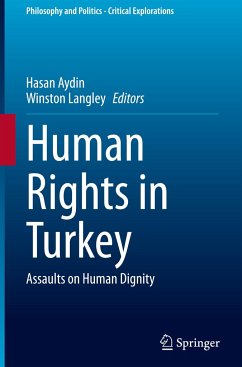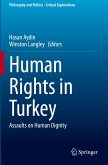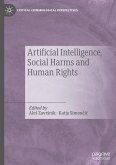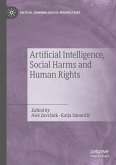The book provides the historical setting of Turkey related to the development of democracy, human rights issues, the treatment of cultural and ethnic minorities, and the short- and long-term consequences of the crackdown including impacts on individuals, institutions like education and the media, the criminal justice system, the economy, and Turkey's standing in the international community. Since the foundation of the Republic of Turkey, the military and the media have been the main traditional powers of oppressive, secularist, and nationalist regimes in the country. After a period of initial reforms, rather than eliminating the structures of the authoritarian state, Recep Tayyip Erdogan seized the levers of power and used them aggressively against his political enemies. He turned Turkey into a one-man regime after the failed coup attempt on July 15, 2016, and his actions included the widespread violation of human rights.
This book tells the tale of the consequencesof the measures taken after the failed coup attempt that have adversely impacted the development of democracy and human rights in Turkey, altering the nation's course of history. Beginning with a State of Emergency that was declared in July of 2016, Turkey has moved to a more authoritarian state. Among the consequences of the actions taken have been imprisonment of hundreds of thousands, the shuttering of media, the dismissal of public employees, the dismissal of academics, jailed elected Kurdish politicians, and the misuse of the criminal justice to victimize the population. Adverse effects have included widespread violations of human rights, torture, and mistreatment of prisoners, false imprisonment, and the absence of the right to a fair trial. This book examines some of the thorniest questions of Turkish democratization and human rights, including the underlying reasons for the decay of democracy and what has happened as a result of this decay. Among these is a deterioration of the educational system, a reduction in economic stability, the absence of the rule of law and due process, a radical transformation of the country, and violations of universal human rights.
Endorsements:
As one who knows people who have been victimized by the authoritarian regime in Turkey, "Human Rights in Turkey" provides unique insights and perspectives on the changes that have befallen his wonderful country. It is truly insightful.
David L. Carter, Ph.D., Michigan State University
Human Rights in Turkey: Assaults on Human Dignity fills a major gap in contemporary political scholarship. Its elucidation of Turkey's democratic backsliding into a one-man authoritarian regime is insightful and unique. Absolutely required reading for anyone who cares about this beautiful country, its wonderful people, and its uncertain future.
Kati Piri, Member of the European Parliament and Delegationto the EU-Turkey Joint Parliamentary Committee
Aydin's and Langley's book addresses critical issues in a critical case. Turkey had been regarded as a rising democracy in a troubled region, but in recent years the country has experienced troubling signs of democratic erosion. Central to that decline is the precarious status of basic human rights of expression, association, religion, and due process. This book explores what has happened and how it affects individuals and the Turkish polity more broadly.
John M. Carey, Ph.D.. Wentworth Professor in the Social Sciences, Dartmouth College, NH, USA
Turkey was once a poster-boy of the league of modernizing countries - a staunch ally of the West, an almost-democracy that would become better soon enough. It might even be the first Muslim country to join the European Union. That image now lies shattered under the erratic one-man-showo
This book tells the tale of the consequencesof the measures taken after the failed coup attempt that have adversely impacted the development of democracy and human rights in Turkey, altering the nation's course of history. Beginning with a State of Emergency that was declared in July of 2016, Turkey has moved to a more authoritarian state. Among the consequences of the actions taken have been imprisonment of hundreds of thousands, the shuttering of media, the dismissal of public employees, the dismissal of academics, jailed elected Kurdish politicians, and the misuse of the criminal justice to victimize the population. Adverse effects have included widespread violations of human rights, torture, and mistreatment of prisoners, false imprisonment, and the absence of the right to a fair trial. This book examines some of the thorniest questions of Turkish democratization and human rights, including the underlying reasons for the decay of democracy and what has happened as a result of this decay. Among these is a deterioration of the educational system, a reduction in economic stability, the absence of the rule of law and due process, a radical transformation of the country, and violations of universal human rights.
Endorsements:
As one who knows people who have been victimized by the authoritarian regime in Turkey, "Human Rights in Turkey" provides unique insights and perspectives on the changes that have befallen his wonderful country. It is truly insightful.
David L. Carter, Ph.D., Michigan State University
Human Rights in Turkey: Assaults on Human Dignity fills a major gap in contemporary political scholarship. Its elucidation of Turkey's democratic backsliding into a one-man authoritarian regime is insightful and unique. Absolutely required reading for anyone who cares about this beautiful country, its wonderful people, and its uncertain future.
Kati Piri, Member of the European Parliament and Delegationto the EU-Turkey Joint Parliamentary Committee
Aydin's and Langley's book addresses critical issues in a critical case. Turkey had been regarded as a rising democracy in a troubled region, but in recent years the country has experienced troubling signs of democratic erosion. Central to that decline is the precarious status of basic human rights of expression, association, religion, and due process. This book explores what has happened and how it affects individuals and the Turkish polity more broadly.
John M. Carey, Ph.D.. Wentworth Professor in the Social Sciences, Dartmouth College, NH, USA
Turkey was once a poster-boy of the league of modernizing countries - a staunch ally of the West, an almost-democracy that would become better soon enough. It might even be the first Muslim country to join the European Union. That image now lies shattered under the erratic one-man-showo








